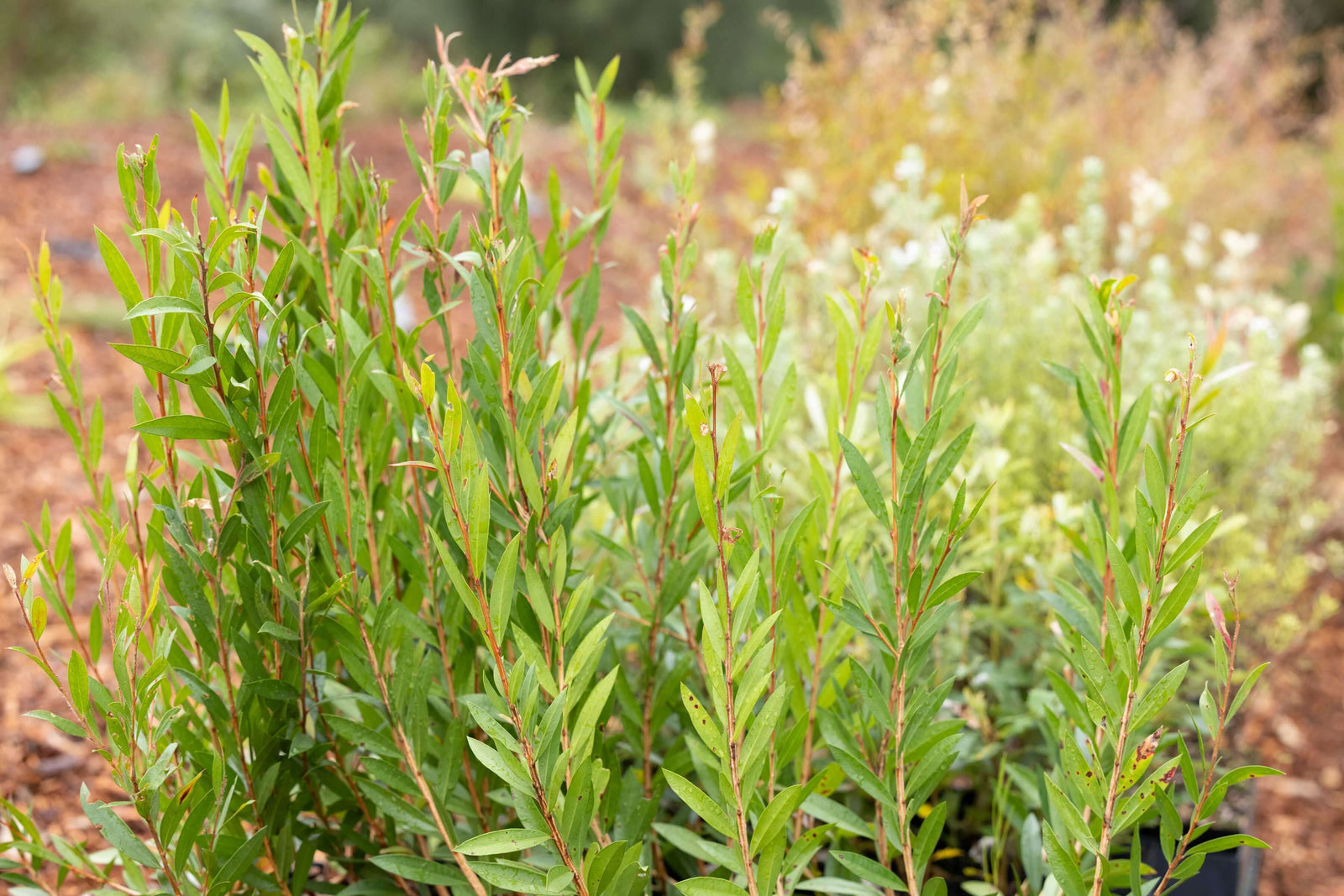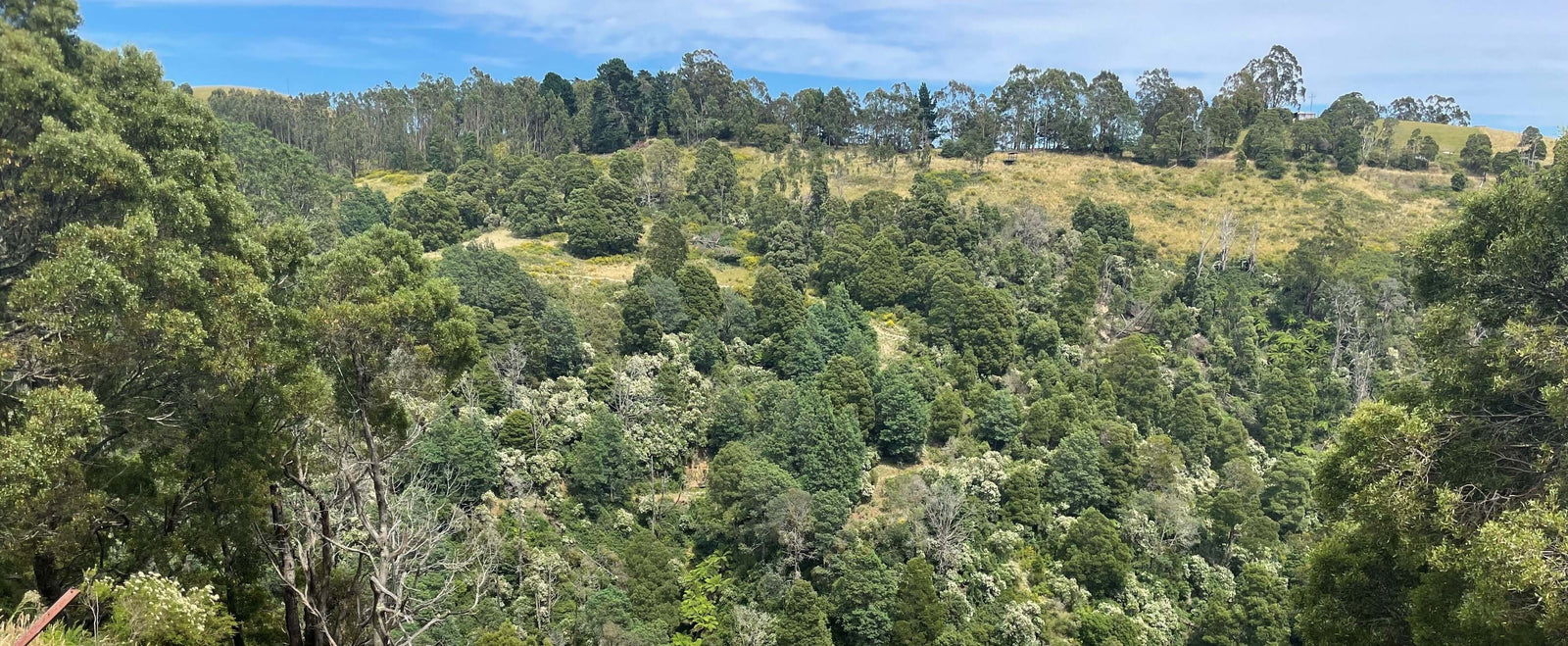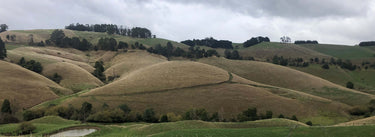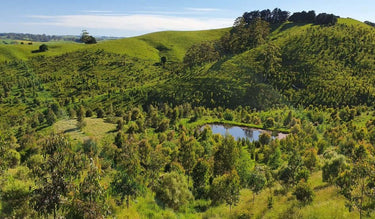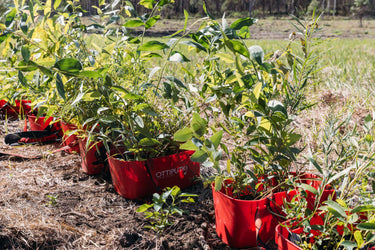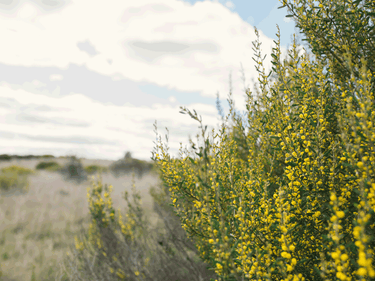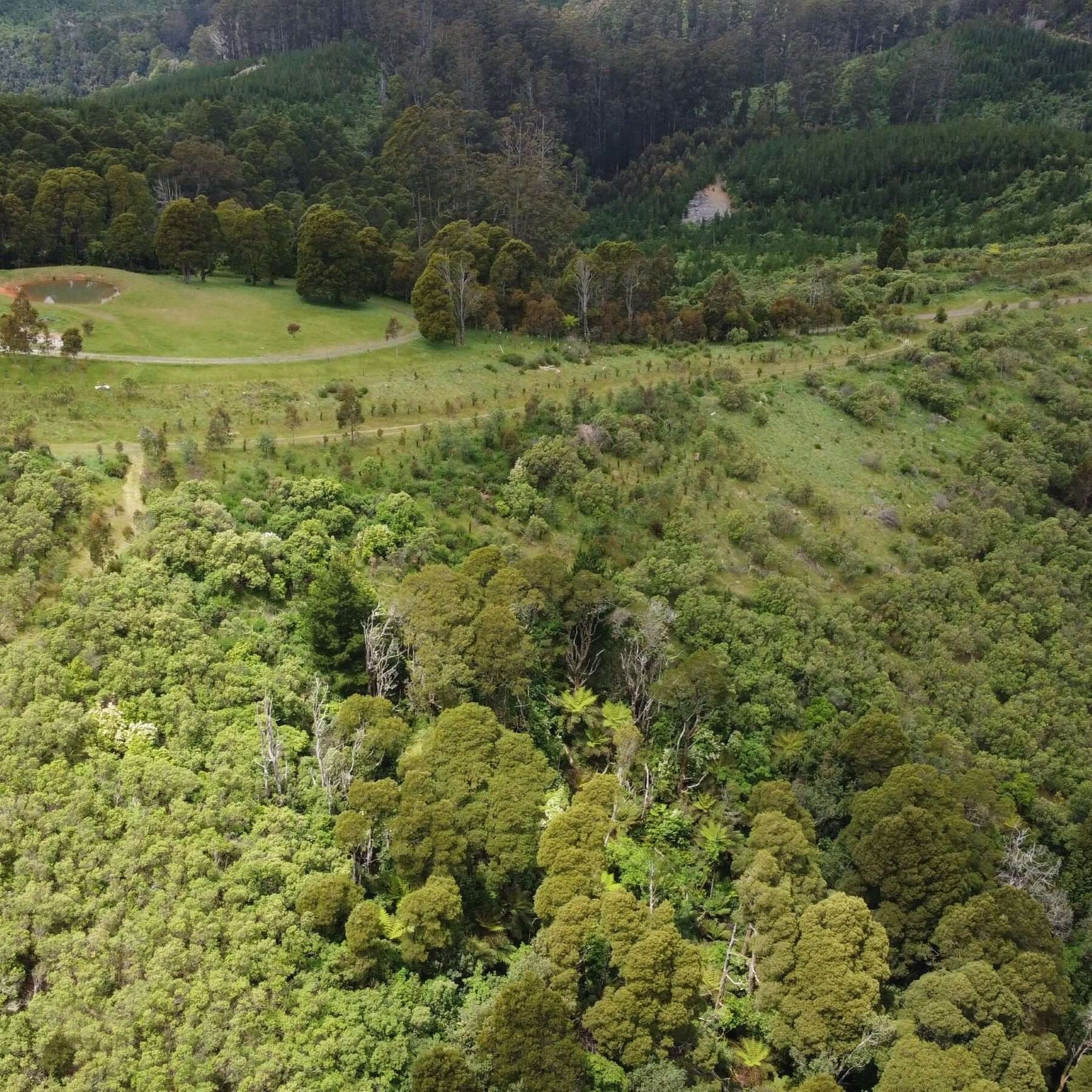2023 was Greenfleet’s biggest year yet for climate action and native revegetation. We continued our focus on delivering climate action, removing carbon, restoring nature, and advancing Reconciliation.
We create this annual Impact Report to demonstrate the significant climate action we deliver on behalf of our supporters.
By joining Greenfleet in the fight against climate change, you are growing hope for our climate and wildlife.
In 2023, thousands of individuals and over 500 corporate supporters contributed to our revegetation of 608 hectares in Australia and New Zealand. The legally protected forests created will remove 513,887 tonnes of carbon over their lifetime. This equates to removing around 120,000 average cars from Australia’s roads for a whole year or sequestering the emissions of 34,000 Australian households.
Our reforestation projects in 2023 include 493 hectares of new koala habitat, that will be legally protected through the rest of this century. Since 2021, we have restored nearly 1,000 hectares back to native forest that will provide food and homes to these iconic animals.
Our Impact: 2023
-
![]()
Greenfleet undertook significant plantings at Glendalough, on Boon Wurrung Country in South Gippsland. As we return nearly half of its 240 hectares back to native forest, this working farm demonstrates how regenerative, sustainable agriculture successfully coexists with climate action.
-
![]()
We continued the restoration of the Strzelecki Nature Link. This project consists of four Greenfleet owned properties and once established will create 3.5 kilometres of contiguous habitat for koalas and other species such as the critically endangered Swift Parrot.
-
![]()
2023 uncovered unprecedented levels of greenwashing and inauthentic climate action within our industry. Greenfleet is proud to align carbon removal with the restoration of new, legally protected ecosystems. Our offsets cannot be traded, are audited annually by Pitcher Partners, and assured by EY. Greenfleet also provides security that our forests are legally protected for up to 100 years.
-
![]()
We continued to develop our relationships with Indigenous communities, including the Kabi Kabi Peoples Aboriginal Corporation and South Gippsland’s Boon Wurrung people. We are also advancing our own Reconciliation Action Plan (RAP) and look forward to furthering these relationships in the coming years.


